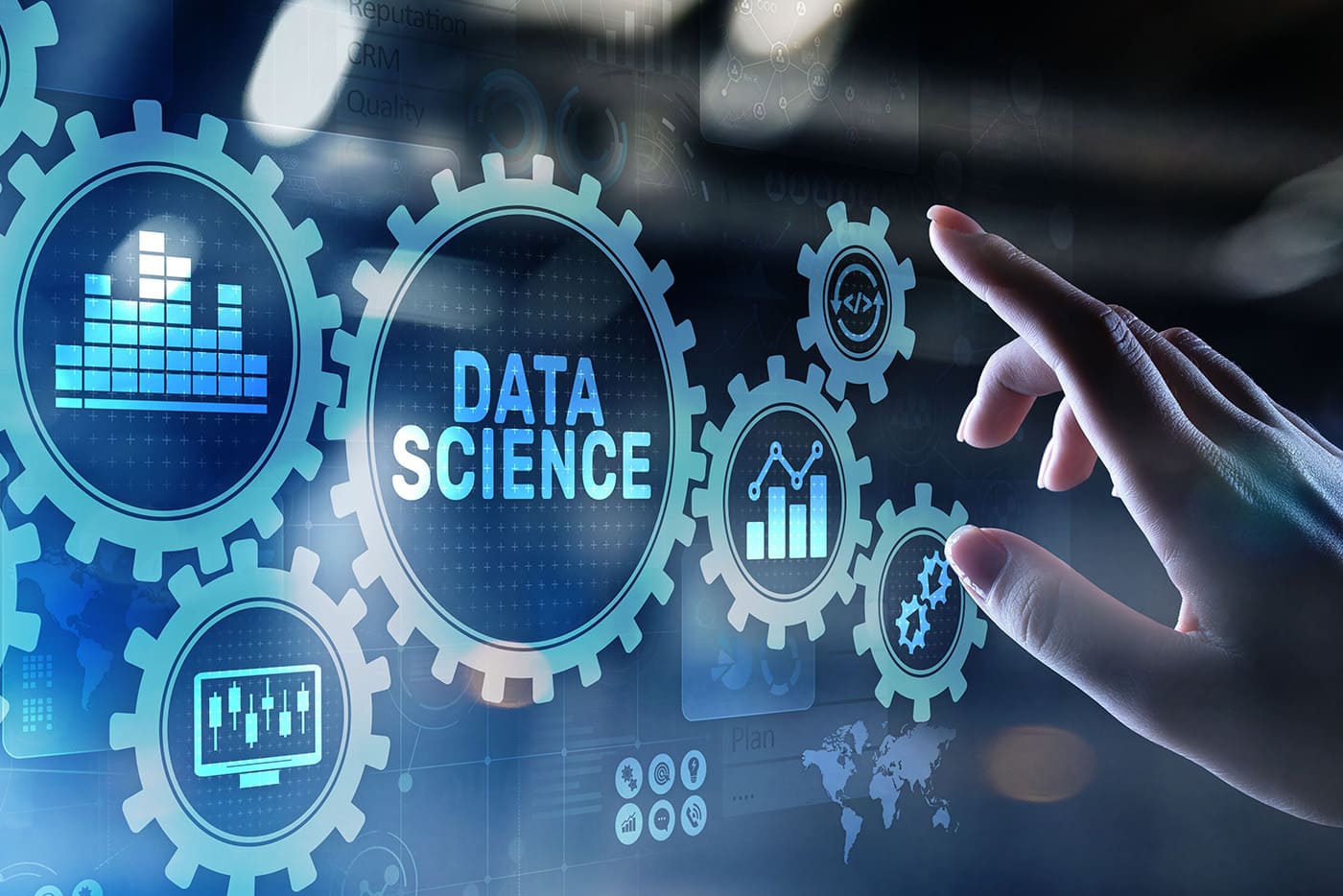The Top 5 Data Science And Analytics Trends In 2023
7 November 2022
Data is increasingly the differentiator between winners and also-rans in business. Today, information can be captured from many different sources, and technology to extract insights is becoming increasingly accessible.

Moving to a data-driven business model – where decisions are made based on what we know to be true rather than “gut feeling” – is core to the wave of digital transformation sweeping through every industry in 2023 and beyond. It helps us to react with certainty in the face of uncertainty – especially when wars and pandemics upset the established order of things.
But the world of data and analytics never stands still. New technologies are constantly emerging that offer faster and more accurate access to insights. And new trends emerge, bringing us new thinking on the best ways to put it to work across business and society at large. So, here’s my rundown of what I believe are the most important trends that will affect the way we use data and analytics to drive business growth in 2023.
Data Democratization
One of the most important trends will be the continued empowerment of entire workforces – rather than data engineers and data scientists – to put analytics to work. This is giving rise to new forms of augmented working, where tools, applications, and devices push intelligent insights into the hands of everybody in order to allow them to do their jobs more effectively and efficiently.
In 2023, businesses will understand that data is the key to understanding customers, developing better products and services, and streamlining their internal operations to reduce costs and waste. However, it’s becoming increasingly clear that this won’t fully happen until the power to act on data-driven insights is available to frontline, shop floor, and non-technical staff, as well as functions such as marketing and finance.
Some great examples of data democracy in practice include lawyers using natural language processing (NLP) tools to scan pages of documents of case law, or retail sales assistants using hand terminals that can access customer purchase history in real time and recommend products to up-sell and cross-sell. Research by McKinsey has found that companies that make data accessible to their entire workforce are 40 times more likely to say analytics has a positive impact on revenue.
Artificial Intelligence
Artificial intelligence (AI) is perhaps the one technology trend that will have the biggest impact on how we live, work and do business in the future. Its effect on business analytics will be to enable more accurate predictions, reduce the amount of time we spend on mundane and repetitive work like data gathering and data cleansing, and to empower workforces to act on data-driven insights, whatever their role and level of technical expertise (see Data Democratization, above).
Put simply; AI allows businesses to analyze data and draw out insights far more quickly than would ever be possible manually, using software algorithms that get better and better at their job as they are fed more data. This is the basic principle of machine learning (ML), which is the form of AI used in business today. AI and ML technologies include NLP, which enables computers to understand and communicate with us in human languages, computer vision which enables computers to understand and process visual information using cameras, just as we do with our eyes; and generative AI, which can create text, images, sounds and video from scratch.
Cloud and Data-as-a-Service
I’ve put these two together because cloud is the platform that enables data-as-a-service technology to work. Basically, it means that companies can access data sources that have been collected and curated by third parties via cloud services on a pay-as-you-go or subscription-based billing model. This reduces the need for companies to build their own expensive, proprietary data collection and storage systems for many types of applications.
As well as raw data, DaaS companies offer analytics tools as-a-service. Data accessed through DaaS is typically used to augment a company’s proprietary data that it collects and processes itself in order to create richer and more valuable insights. It plays a big part in the democratization of data mentioned previously, as it allows businesses to work with data without needing to set up and maintain expensive and specialized data science operations. In 2023, it’s estimated that the value of the market for these services will grow to $10.7 billion.
Real-Time Data
When digging into data in search of insights, it's better to know what's going on right now – rather than yesterday, last week, or last month. This is why real-time data is increasingly becoming the most valuable source of information for businesses.
Working with real-time data often requires more sophisticated data and analytics infrastructure, which means more expense, but the benefit is that we’re able to act on information as it happens. This could involve analyzing clickstream data from visitors to our website to work out what offers and promotions to put in front of them, or in financial services, it could mean monitoring transactions as they take place around the world to watch out for warning signs of fraud. Social media sites like Facebook analyze hundreds of gigabytes of data per second for various use cases, including serving up advertising and preventing the spread of fake news. And in South Africa’s Kruger National Park, a joint initiative between the WWF and ZSL analyzes video footage in real-time to alert law enforcement to the presence of poachers.
As more organizations look to data to provide them with a competitive edge, those with the most advanced data strategies will increasingly look towards the most valuable and up-to-date data. This is why real-time data and analytics will be the most valuable big data tools for businesses in 2023.
Data Governance and Regulation
Data governance will also be big news in 2023 as more governments introduce laws designed to regulate the use of personal and other types of data. In the wake of the likes of European GDPR, Canadian PIPEDA, and Chinese PIPL, other countries are likely to follow suit and introduce legislation protecting the data of their citizens. In fact, analysts at Gartner have predicted that by 2023, 65% of the world’s population will be covered by regulations similar to GDPR.
This means that governance will be an important task for businesses over the next 12 months, wherever they are located in the world, as they move to ensure that their internal data processing and handling procedures are adequately documented and understood. For many businesses, this will mean auditing exactly what information they have, how it is collected, where it is stored, and what is done with it. While this may sound like extra work, in the long term, the idea is that everyone will benefit as consumers will be more willing to trust organizations with their data if they are sure it will be well looked after. Those organizations will then be able to use this data to develop products and services that align more closely with what we need at prices we can afford.
Related Articles
Dreamforce 2025 Proved The Agentic Enterprise Has Arrived
By now, “smart” versions exist of just about every home appliance, gadget and gizmos we can think of. However, manufacturers continue[...]
The Top 5 Technology Trends For 2026
By now, “smart” versions exist of just about every home appliance, gadget and gizmos we can think of. However, manufacturers continue[...]
The 7 Biggest Cyber Security Trends Of 2026 That Everyone Must Be Ready For
By now, “smart” versions exist of just about every home appliance, gadget and gizmos we can think of. However, manufacturers continue[...]
7 Terrifying AI Risks That Could Change The World
By now, “smart” versions exist of just about every home appliance, gadget and gizmos we can think of. However, manufacturers continue[...]
Why You Should All Be Worried About Q-Day And The Collapse Of Digital Security
By now, “smart” versions exist of just about every home appliance, gadget and gizmos we can think of. However, manufacturers continue[...]
Quantum Computing Faces 3 Major Barriers Before Going Mainstream
By now, “smart” versions exist of just about every home appliance, gadget and gizmos we can think of. However, manufacturers continue[...]
Sign up to Stay in Touch!
Bernard Marr is a world-renowned futurist, influencer and thought leader in the fields of business and technology, with a passion for using technology for the good of humanity.
He is a best-selling author of over 20 books, writes a regular column for Forbes and advises and coaches many of the world’s best-known organisations.
He has a combined following of 4 million people across his social media channels and newsletters and was ranked by LinkedIn as one of the top 5 business influencers in the world.
Bernard’s latest book is ‘Generative AI in Practice’.










Social Media